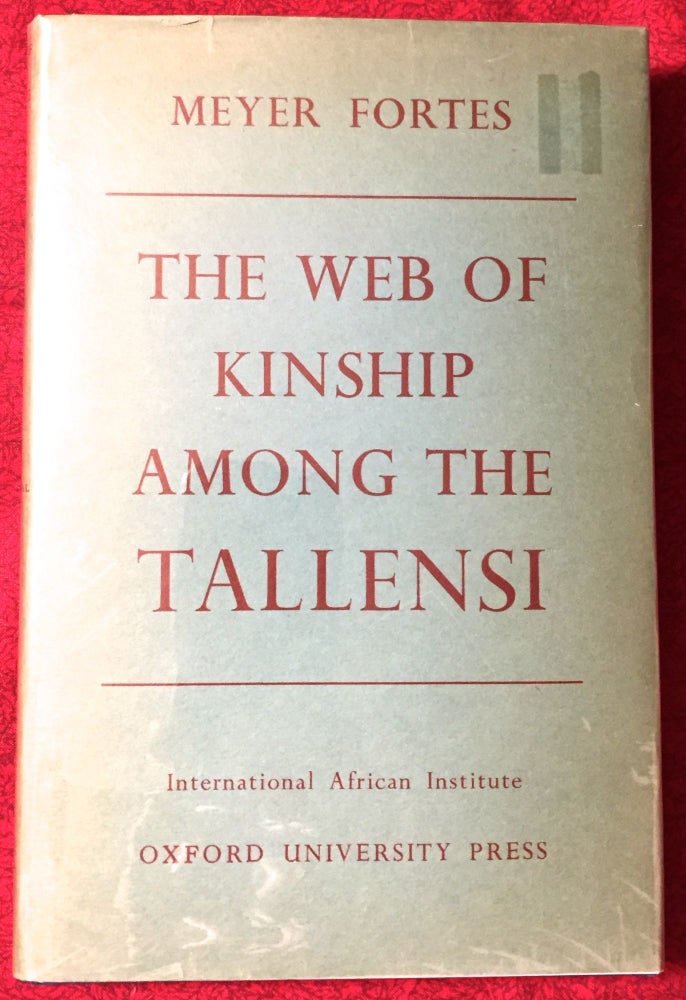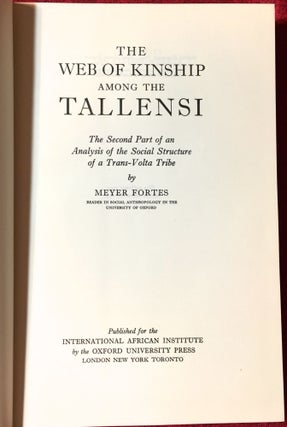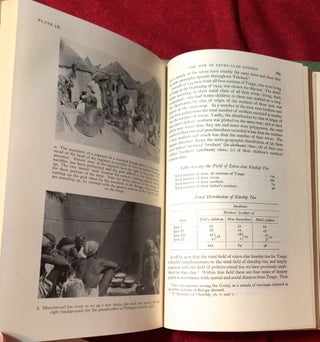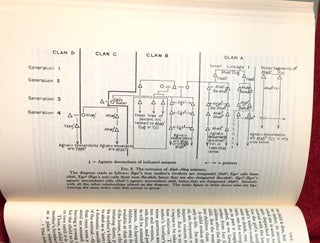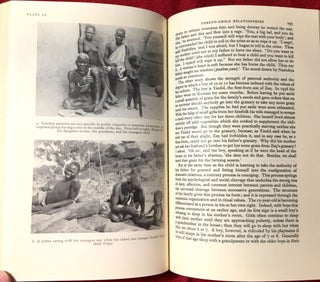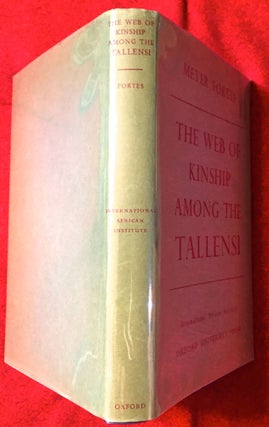The Web of Kinship Among the Tallensi; The Second Part of an Analysis of the Social Structure of a Trans-Volta Tribe
London New York Toronto: Oxford University Press for the International African Institute, 1957. Photographs. Second Impression. Cloth. 8vo, Navy blue cloth with gold lettering on spine, Mylar-protected pale green dust jacket (unclipped) with maroon lettering, illustrated with 16 glossy B&W photographic plates (usually two images/page) & a few in-text diagrams, xiv + 358 pages. Fine / Near Fine. Item #2193
Second part--complete unto itself--of distinguished anthropologist Meyer Fortes' important study of a Trans-Volta tribe of the Northern Territories of the Ghanian "Gold Coast."
Meyer Fortes (1906 – 1983) was a South African-born anthropologist, best known for his work among the Tallensi and Ashanti in Ghana.
Originally trained in psychology, Fortes employed the idea of the "person" into his structural-functional analyses of kinship, the family, and ancestor worship. His famous book, Oedipus and Job in West African Religion (1959) set a standard for comparative ethnology. He also wrote extensively on issues of the first born, kingship, and divination.
Fortes received his anthropological training at the London School of Economics. Fortes also trained with Bronis aw Malinowski and Raymond Firth. Along with contemporaries A. R. Radcliffe-Brown, Sir Edmund Leach, Audrey Richards, and Lucy Mair, Fortes held strong functionalist views that insisted upon empirical evidence. His volume with E. E. Evans-Pritchard, African Political Systems (1940) established the principles of segmentation and balanced opposition, which were to become the hallmarks of African political anthropology. Fortes' work on political systems was influential to other British anthropologists, especially Max Gluckman and played a role in shaping what became known as the Manchester school of social anthropology.
Fortes was the William Wyse Professor of Social Anthropology at Cambridge from 1950-1973.--Wikipedia abridged
EXCEPTIONAL STUDY in SUPERIOR CONDITION! Dust jacket is in remarkably Fine condition, though with remnant of price sticker on its upper right. Three pages have corners that were previously folded during printing.
Price: $35.00

